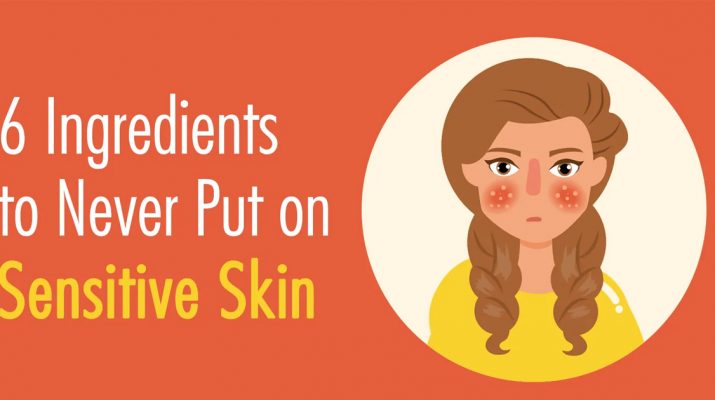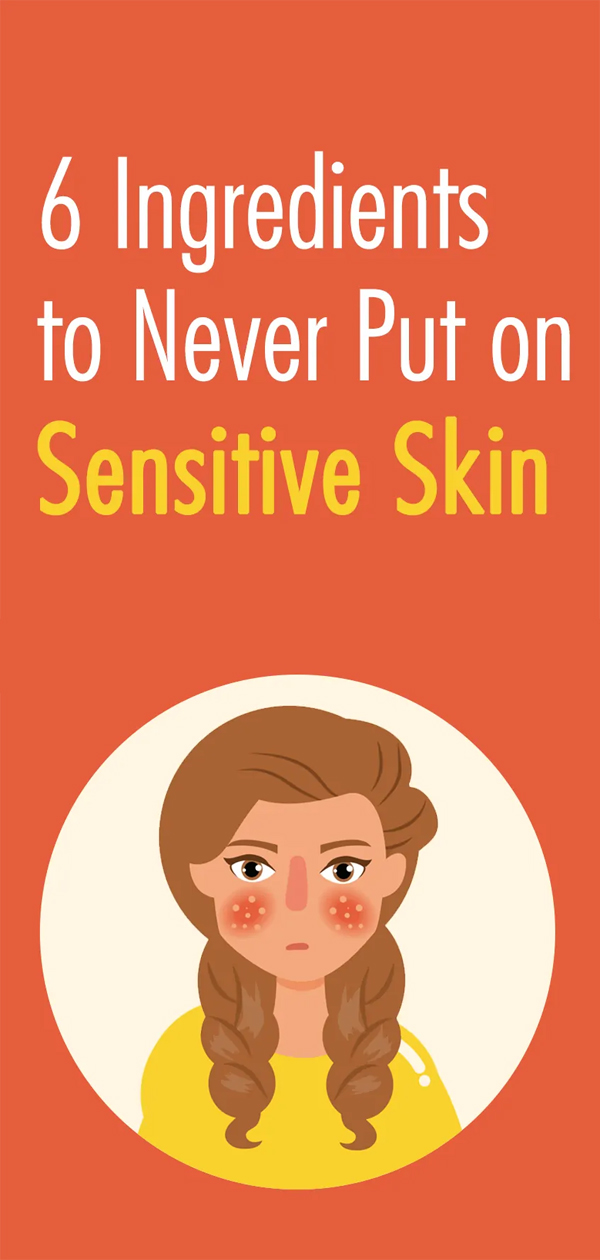Sensitive skin can be difficult to manage if you don’t know what things can cause an outbreak. When it comes to skincare, you have to be careful about the things you put on your skin. If you have dry or sensitive skin, you might want to avoid a medley of things your skin might come into contact with every day.
While some things may seem good for your skin, people with sensitive skin could easily suffer an adverse reaction to these very products. Dermatologists list a variety of things that people with sensitive skin should avoid in order to keep their skin soft and healthy.
Here Are 6 Ingredients To Never Put On Sensitive Skin
1. Dyes
While most clothing contains dyes of some sort, you should do your best to avoid getting these dyes onto your skin. Make sure to wash all your new clothes when you get them from the store, as this will remove excess dye from the factory out of the fabric.
Not only should you avoid dye from clothing, but you should also avoid hair dyes. Permanent hair dye colors tend to have ingredients that cause irritation to sensitive skin.
Dark hair dye colors, especially, can often cause an allergic reaction in someone who has sensitive skin. If you’re looking to dye your hair, consider hypoallergenic or natural hair dye methods. Natural dyes such as henna may not last as long, but they will be healthier for sensitive skin in the long run.
2. Essential Oils
Even though essential oils are supposed to be “all natural,” they can be dangerous if you don’t know what you’re doing. Essential oils are incredibly concentrated, and for this reason should never be used without first diluting them. This also goes for people who don’t have sensitive skin. If you have sensitive skin or any form of allergy, you should avoid using essential oils, even if they’re diluted.
3. Exfoliants
If you’re looking to get excess matter or dead skin off your body, you would do well to be careful about the products you choose. Many dermatologists suggest that using gentle exfoliants can be good for people with sensitive skin, especially ones that have citrus in them.
Chemical exfoliants can cause allergic reactions or other problems in skin that is sensitive. It might be better to use an exfoliating sponge along with soap and warm water, rather than using an actual exfoliant product.
4. Vitamin E Oil
Vitamin E oil might work well on your skin, but if you have sensitive skin or pores that are easily clogged, avoid using Vitamin E oil on your face. When you have sensitive skin, Vitamin E oil might cause an allergic reaction, such as a rash. Vitamin E oil benefits the skin of some people, but you should still try to steer clear of using this product on the face.
5. Chemical Sunscreens
Did you know that you can find sunscreens that don’t include harsh chemicals? People likely don’t worry about the sunscreen they put on their skin, since it’s supposed to help them avoid getting burned in the first place. After all, how bad could skin protection be?
For people with sensitive skin, the very products that they’re using to keep their skin safe might actually be causing problems. Dr. Ellen Marmur, a dermatologist, suggests avoiding sunscreen with chemicals like Oxybenzone, Avobenzone, Homosalate, and similar chemicals.
6. Fragrances
If you have sensitive skin, avoid products with fragrances. This doesn’t simply mean perfumes, either. Lotions, soaps, shampoos, and perfumes are frequently made with fragrances. The chemicals used to make our skin products smell nice can cause allergic reactions or other issues. Try to avoid scented skin products to keep your skin safe.
Final Thoughts
Your skin is the largest organ on your body. Keeping your skin healthy is an important part of caring for your body. Healthy skin is just as important as eating right and exercising regularly. You might not have realized that so many things that should be “good” for your skin can cause issues if you have sensitive skin. The above list reveals the top things to avoid if you’re experiencing outbreaks, redness, or allergic reactions on your skin.
“Take good care of your skin and hydrate. If you have good skin, everything else will fall into place.” – Liya Kebede


